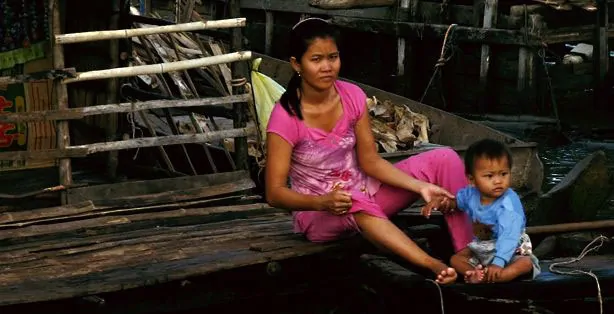
Friendship with people who live on the margins of the larger society, who are generally feared, excluded or overlooked, invites us to reconsider the meaning and practice of mission.
One of the ongoing surprises in mission is experiencing how the gift of friendship contributes to discipleship. Many of the women and children with whom [Word Made Flesh] works have suffered unspeakable trauma, abuse, violence and exploitation. And yet many continue to find the courage to pray. Their faith is resilient. They live with gratitude and hope. From their poverty they practice abundant generosity, giving freely and with joy.
We grow together in discipleship, learning from one another as we draw closer to Jesus. We do not bring the same experiences or the same resources into community, but through our friendships those experiences and resources can be shared, and they become the clay out of which faithful discipleship to Jesus is fashioned.
Mutuality does not come from everyone doing the same thing or making the same contributions. It comes from shared humility, respect and appreciation for the other person, and some sense of shared vision or purpose.
When I (Christine) worked with my church in refugee resettlement in New York, I became good friends with a young Cambodian woman who had escaped with her children and mother from Pol Pot’s killing fields. Samneang had become a Christian in the refugee camps of Thailand but had begun calling out to “the Christian God” earlier during her escape. In the Thai camp, life was terribly difficult but a vibrant revival was going on, and many people came to faith in Christ. By the time Samneang arrived in New York City, her Christian faith was strong and contagious.
She and I participated in a small group that met in my apartment, and the members heard her stories of God’s miraculous interventions in her escape and in saving people from death and terror in the camp. She challenged and inspired us with a bigger picture of God and wondered aloud why God seemed less active in the United States. If we compared levels of trauma, loss and suffering, she was certainly the needy one, yet she brought life to the church community and to me even as we reached out to her and her family.
My church welcomed many refugees over the course of just a few years. As a congregation we matured through friendship with people from various, very different cultures. We learned the importance of fidelity and stability. A willingness to put down roots in a particular place and with a particular group of people provides a setting where over time we are forced to depend on God’s grace as we work through interpersonal issues and go deeper into the Christian life. Such stability is a challenge to our contemporary tendencies toward self-serving notions of pilgrimage or journey that allow us to pick up and leave when things get difficult.
Sometimes we hesitate to reach out to strangers and people on the margins because we are afraid—there are too many unknowns. But as we saw in the earlier stories about Lima, safety and friendship are surprisingly linked—for everyone. In fact, friendship in the hard places invites a rethinking of what it means to be safe in any place.
When I (Christine) spent time with Catholic Worker folks in New York City, I was reminded of the close connection between security and relationships. As we walked toward one of the Catholic Worker houses, the woman I was with greeted by name a remarkable number of people. Almost all were folks that the other New Yorkers on the street were doing their best to avoid. I would have been nervous if I’d been alone. Over the years she had become friends with many of the homeless people in lower Manhattan, and while she asked them specifics about how they were doing, they also asked about her circumstances. There were many moments of obvious mutual affection that reflected a long and caring history of shared meals and experiences at the Catholic Worker communities.
Being in mission with people on the margins also reminds us of the importance of locating ourselves in places where we can respond to the initiative of another person for friendship. Unless our worlds are mutually accessible, all of the initiative is likely to come from one direction only. And unless a person has opportunities to offer friendship and gifts on his or her own turf, the relationship is unlikely to yield its most mature fruit.
The stories of friendships at the margins remind us of the power of hospitality and a hospitable presence. People are transformed when someone is willing to listen to their stories, to share a meal with them, to find their insights and concerns important or interesting. They are able to recover a measure of self-respect and a fuller sense of identity. But hospitality works both ways, and people on the margins also gain self-respect and recognize their own gifts when someone is willing to receive their hospitality.
Henri Nouwen has written that “we will never believe we have anything to give unless there is someone who is able to receive. Indeed, we discover our gifts in the eyes of the receiver.” Making sure that each person has a place in community and an opportunity to contribute is important for all of us.
Taken from Friendship at the Margins: Discovering Mutuality in Service and Mission by Christopher L. Heuertz and Christine D. Pohl. Copyright(c) 2010 by Christopher L. Heuertz and Christine D. Pohl. Used by permission of InterVarsity Press PO Box 1400 Downers Grove, IL 60515. www.ivpress.com.





















